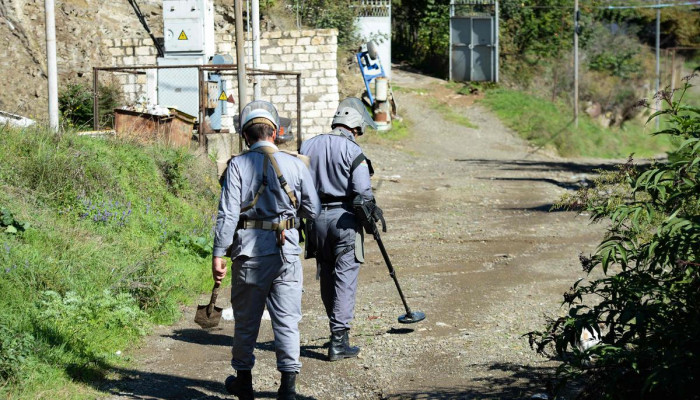European Parliament passes resolution calling for sanctions on Azerbaijan over Armenian ethnic cleansing
- In Reports
- 04:08 PM, Oct 06, 2023
- Myind Staff
European Union (EU) lawmakers have issued a resounding accusation, asserting that Azerbaijan has engaged in what they characterize as "ethnic cleansing" targeting Armenian residents residing in Nagorno-Karabakh. As a result of these grave allegations, the lawmakers are now advocating for the EU to take punitive action against Baku by imposing sanctions.
This accusatory stance emanates from a deeply concerning situation surrounding the Armenian population in Nagorno-Karabakh, a region mired in protracted conflict. The EU lawmakers' assertion underscores the urgent nature of the matter and the serious implications it holds for the region's stability and human rights.
In the wake of Azerbaijan's swift military campaign to reclaim the breakaway region, nearly the entire population of ethnic Armenians, numbering 120,000, has been compelled to vacate the area. This mass exodus of residents has transpired in the span of just a single month, reflecting the urgency and severity of the situation on the ground.
Azerbaijan's lightning offensive in the region has precipitated this upheaval, displacing the significant Armenian community and provoking a humanitarian crisis. The scale of this displacement underscores the extent of the conflict's impact on the civilian population and the profound ramifications it has for the region's demographics and stability.
The European Parliament approved a resolution saying it "considers that the current situation amounts to ethnic cleansing and strongly condemns threats and violence committed by Azerbaijani troops."
EU lawmakers have made a compelling plea to the European Union's 27 member states, urging them to take specific actions in response to the situation in Nagorno-Karabakh. They have called for the adoption of targeted sanctions against individuals within the Azerbaijani government in light of the military assault and alleged human rights violations in the region.
Additionally, these lawmakers have pressed the EU to diminish its reliance on gas exports from Azerbaijan as part of efforts to address concerns regarding energy dependency. Furthermore, they have requested a comprehensive review of the EU's relations with Azerbaijan, reflecting a call for a reassessment of diplomatic ties with the country.
The recent resolution, endorsed by a sweeping majority of 491 legislators with only nine in opposition, does not compel the European Union to take immediate action. Nevertheless, this decision is expected to provoke strong reactions from Baku, which vehemently refutes allegations of ethnic cleansing and has publicly encouraged ethnic Armenians to remain and engage in the process of "reintegration" into Azerbaijan.
European diplomats currently assert that the prospect of imposing sanctions on Azerbaijan is not under active consideration and would likely only be entertained if the situation further deteriorates.
The European Union has considerably increased its natural gas imports from Azerbaijan, marking a shift away from reliance on Russian gas supplies in the aftermath of Moscow's extensive invasion of Ukraine. This shift has been substantiated by a "strategic partnership" agreement signed by European Commission President Ursula von der Leyen and Baku, with the aim of more than doubling gas imports by 2027.
In September, after a 24-hour Azerbaijani offensive, Nagorno-Karabakh, a region mainly inhabited by Armenians who consider it their ancestral land, declared its dissolution, effective January 1, 2024. Historically part of Azerbaijan since the Russian Empire's collapse, it unilaterally declared independence with Armenia's backing in 1991.
Nagorno-Karabakh separatists have fiercely resisted Baku with the backing of Yerevan for three decades, notably during the first Karabakh war from 1988 to 1994 and again in 2020. It's essential to note that the international community has never officially recognized the self-proclaimed republic.
Image source: CNN







Comments